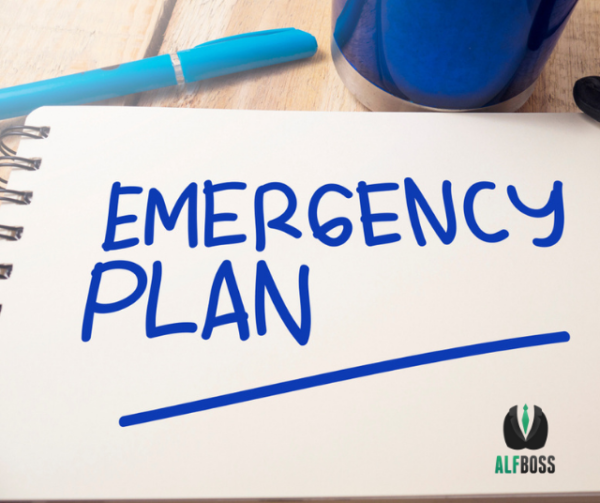
Preparing for an emergency event
Imagine this scenario: A 86-year-old resident has just fallen down two flights of stairs after wandering into your back hall staff stairway. The resident was managed to push their call button but is otherwise maimed from their fall. Unfortunately, the call system is showing they are in their room, yet when staff respond they are not there. Does your staff know what to do? Are they prepared to respond to an emergency like this or something even worse? In addition to the initial response to this event, Pennsylvania Department of Human Services mandates that facilities have a comprehensive emergency medical plan in the event of a resident emergency. Check it out below:
- 2800.143. Emergency medical plan.
(a) The residence shall have a written emergency medical plan that includes the following:
(1) The hospital or source of health care that will be used in an emergency. This shall be the resident’s choice, if possible.
(2) Emergency transportation to be used.
(3) An emergency staffing plan.
(b) The following current emergency medical and health information shall be available at all times for each resident and shall accompany the resident when the resident needs emergency medical attention:
(1) The resident’s name and birth date.
(2) The resident’s Social Security number.
(3) The resident’s medical diagnosis.
(4) The resident’s physician’s name and telephone number.
(5) Current medication, including the dosage and frequency.
(6) A list of allergies.
(7) Other relevant medical conditions.
(8) Insurance or third party payer and identification number.
(9) A power of attorney for health care or health care proxy, if applicable.
(10) The resident’s designated person with current address and telephone number.
(11) Personal information and related instructions regarding advance directives, do not resuscitate orders or organ donation, if applicable.
(12) A speech, hearing or vision need which requires accommodation or awareness, such as written communication or American sign language.
(13) A language need which requires accommodation or awareness, such as an interpreter of translation.
Top Takeaways:
- (3) An emergency staffing plan.
Finding staff is one of the most difficult tasks that administrators are dealt. It is almost impossible to find staff members to come to work at a moment notice after having someone else call out. You should contract with a third-party staffing agency or nurse registry to have substitute staff when in an emergent need.
- (b) The following current emergency medical and health information shall be available at all times for each resident and shall accompany the resident when the resident needs emergency medical attention: 1-12
All of this information should be included in the resident’s comprehensive medical file. Having this information will ensure you are not scrambling at the last moment in an emergent situation.